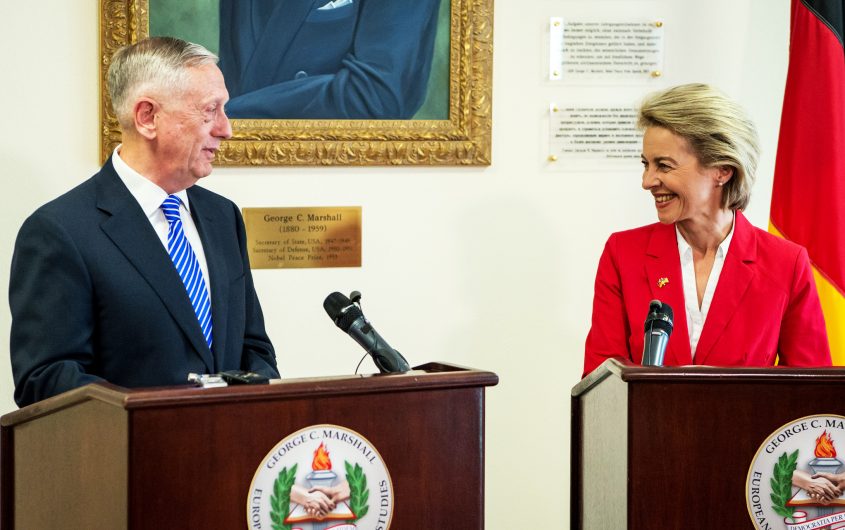
Countering Threats Together in the Cybersphere

Karsten Geier
Federal Foreign Office
Karsten Geier is the head of the German diplomatic mission in Mazar-e-Sharif. During the Transatlantic Cybersecurity Partnership, he was head of the Cyber Policy Coordination Staff in Germany’s Federal Foreign Office. A career Foreign Service officer, Mr. Geier has held a variety of posts both at home and abroad. He has served in South-Eastern Europe, Brussels at Germany’s Representation to the European Union, and Washington, DC, including as exchange officer in the U.S. Department of State. His most recent assignment abroad led him to New York, where he helped set up the European Union Delegation and subsequently worked at Germany’s Mission to the United Nations. Mr. Geier was Germany’s member of the 2014/2015 UN Group of Governmental Experts on Developments in the Field of Information and Telecommunications in the Context of International Security and chaired the 2016/2017 Group. A frequent public speaker and author of articles on international cyber affairs, Mr. Geier has also taught modules or given presentations at Germany’s Federal Academy for Security Policy, the Foreign Service Academy, the Führungsakademie der Bundeswehr (German Armed Forces’ Leadership College), the European Security and Defense College, the George C. Marshall Center, and other educational institutions.
When the Internet was created, engineers, users, and even political decision-makers were full of idealism. Yet such benign uses of information and communication technology (ICT) are not the whole story. More and more states are using ICT as a means of international conflict. Consequently, the enormous benefits for economic growth and prosperity cyberspace offers are accompanied by risks of escalation and retaliation. Massive denial-of-service attacks, damage to critical infrastructure, or other malicious cyber activity that impairs the use and operation of critical infrastructure have a destabilizing effect on international peace and security. Cyber-enabled interference in democratic political processes also gives reason for concern.
Transatlantic partners have been seeking to address this development. NATO warned at the 2014 Wales Summit that cyberattacks can reach a threshold that threatens national and Euro-Atlantic prosperity, security, and stability. Their impact could be as harmful to modern societies as a conventional attack. Allies affirmed that cyber defense is part of NATO’s core task of collective defense.
Such warnings must be flanked by a global understanding of the rules for responsible state behavior in cyberspace. The G7 partners committed themselves to contribute to international cooperative action to this end in the 11 April 2017 Lucca Declaration on responsible State Behavior in Cyberspace.
We also need to move forward our work in the United Nations. Since 2005, the United Nations General Assembly has mandated a series of Groups of Governmental Experts to work on this issue. Over the years, these groups have arrived at important conclusions, affirming that international law, and in particular the UN Charter, is applicable and is essential to maintaining peace and stability, offering not only insights on how existing international law applies, but also voluntary, non-binding norms of responsible state behavior to reduce risks to international peace, security, and stability.
Nevertheless, deeply held, worrisome divisions between nations on the use of ICT persist. Their resolution will be fundamental to creating an ICT environment that is open, secure, stable, accessible, and peaceful. There is a need to retain progress made, to continue the discussion in the United Nations, and to increase transparency and inclusivity. Global issues such as this require a global understanding of the threat situation and ways of addressing and mitigating these threats. In this atmosphere, it is more important than ever that allies, including the United States and Germany, work together to find common solutions to countering such threats in the cybersphere.








